HTC threw us into the Squid Games to preview their new VR headset — the Vive Focus Vision
Does HTC's latest VR headset get the red light, or the green light?
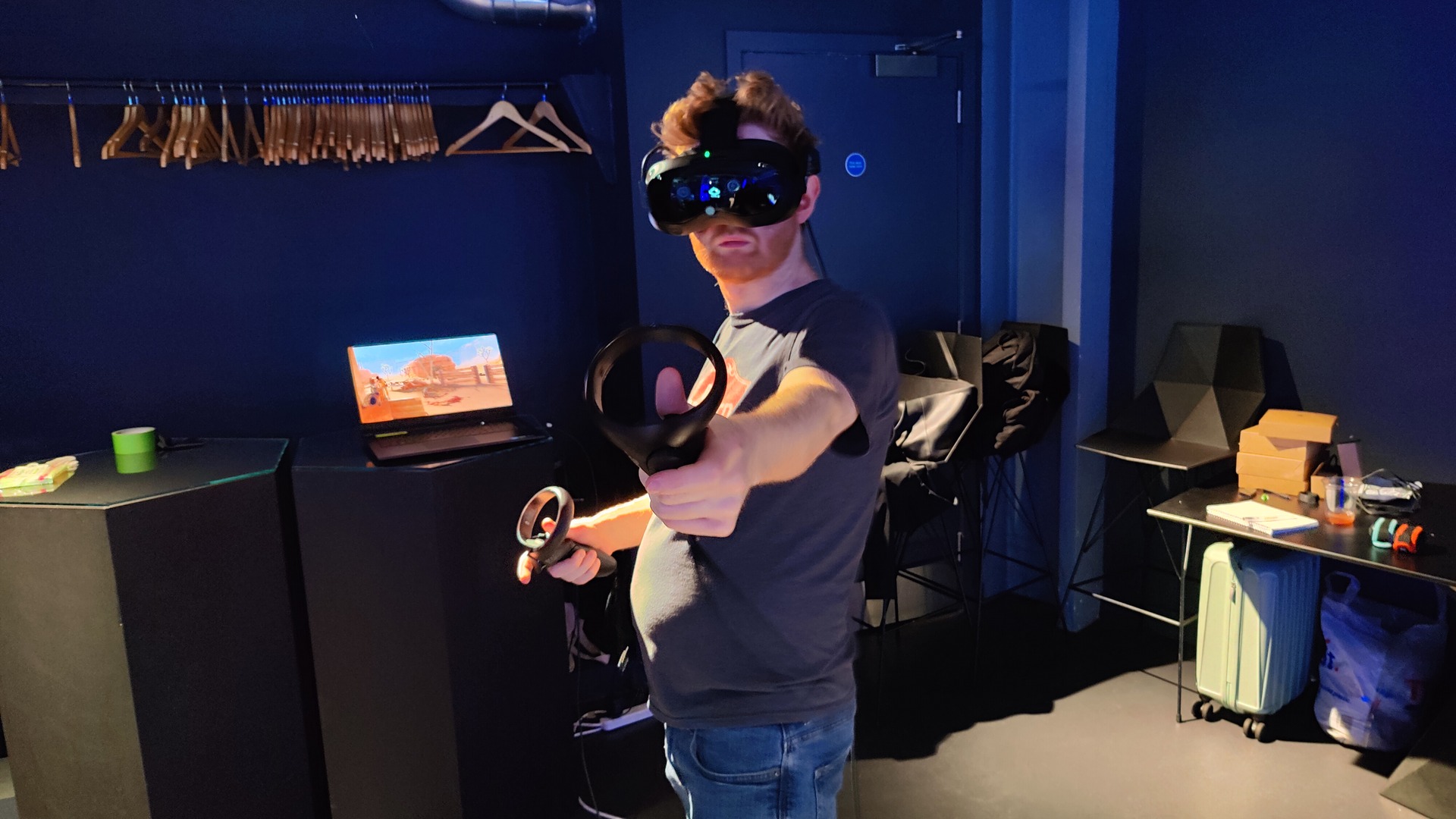
It's fair to say that virtual reality has transitioned from a flashy wonder technology of the future into something that we're just kind of used to. New VR headsets are constantly trickling out, and while some of them cause a big splash because of their outrageous price tag (looking at you Apple Vision Pro), they've still yet to truly deliver on the space-age promise of the technology that will help it smash through into the mainstream.
Now HTC is here with their latest VR headset — the HTC Vive Focus Vision — and they invited us down to London to check it out. How will it compare to the best VR headsets on the market? Let's find out!
As Road to VR points out, a lot of the key specs on this new headset overlap with the Vive Focus 3, an enterprise-focused headset that HTC released back in 2021. It has the same Fresnel optics, the same 5K (2448 x 2448 pixels per eye) displays, and the same controllers. It's a hybrid headset, capable of running standalone, or as a PC VR headset that connects via WiFi, USB-C, or DisplayPort. One of the big new additions for the Focus Vision is the incorporation of color passthrough, which uses a mixture of cameras and depth sensors to offer an "augmented" reality experience, where you can see the real world with VR stuff layered on top of it.
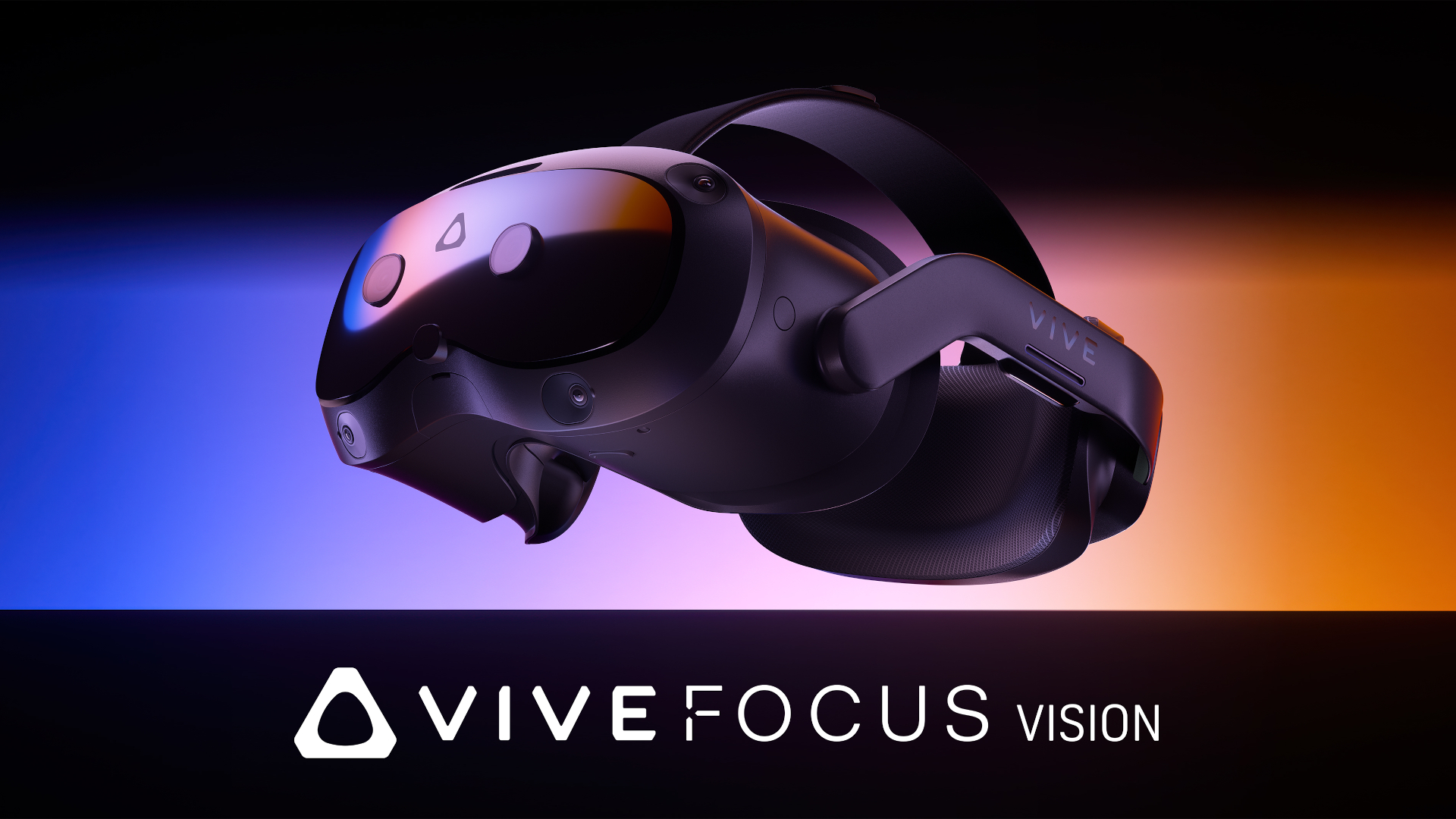
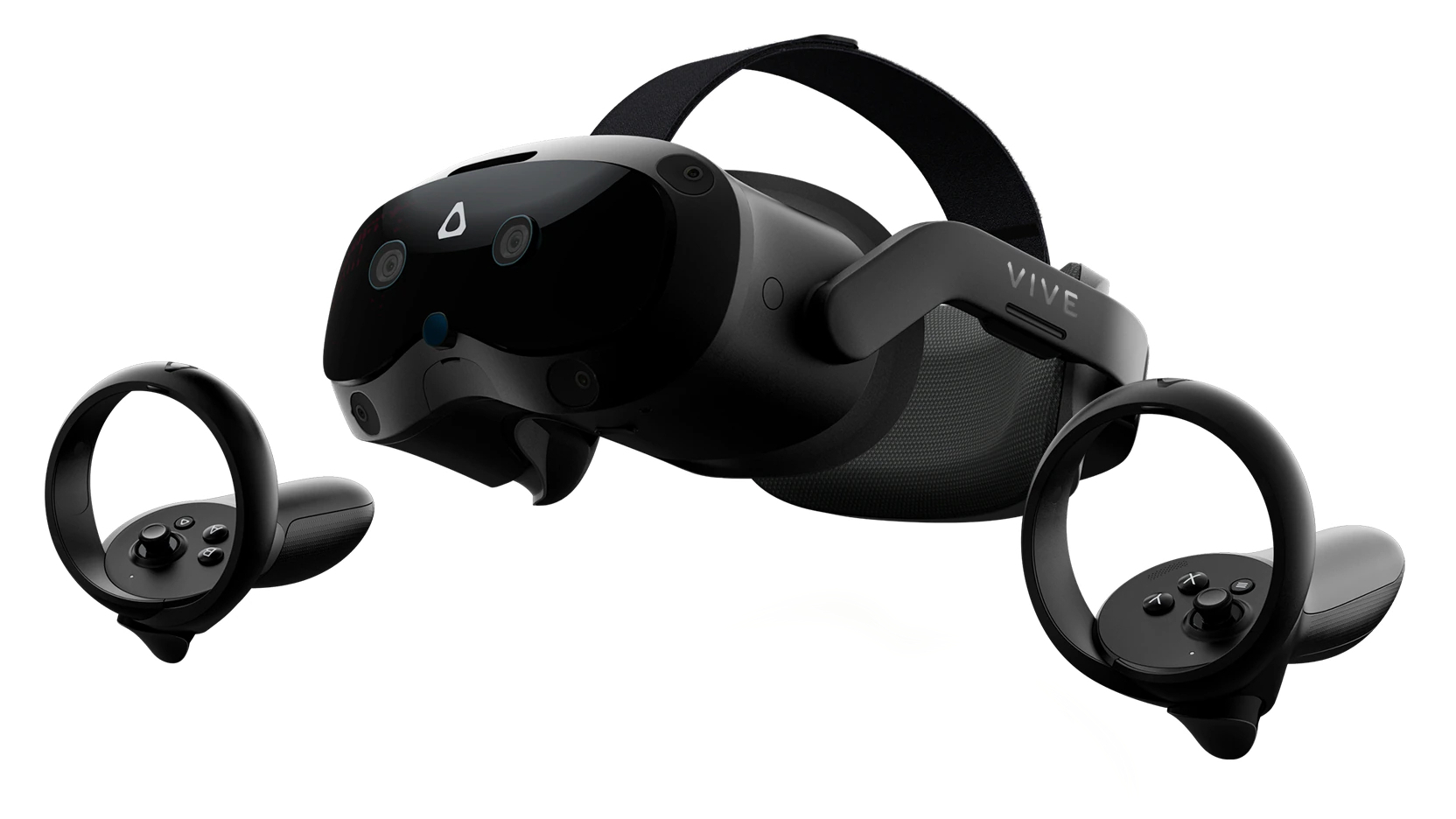
Forget all that though. We didn't cart ourselves off to London to talk about specs and features — we're here to play some games. Squid Games, specifically, as Netflix has partnered with Sandbox VR to bring its excellent dystopian sci-fi survival thriller to life as Squid Game Virtuals. This isn't a VR game you can buy at home though — it's a tailor-made group experience.
The demo event took place at Sandbox VR's spot in London, a space-age-looking room-scale VR venue packed with dedicated VR play spaces for large groups and an honest-to-goodness robot bartender. It wasn't quite as creepy as the one in Passengers, so I ordered a mocktail, thanked the machine (when Skynet takes over, I want them to know I was one of the good humans), and headed into the demo.
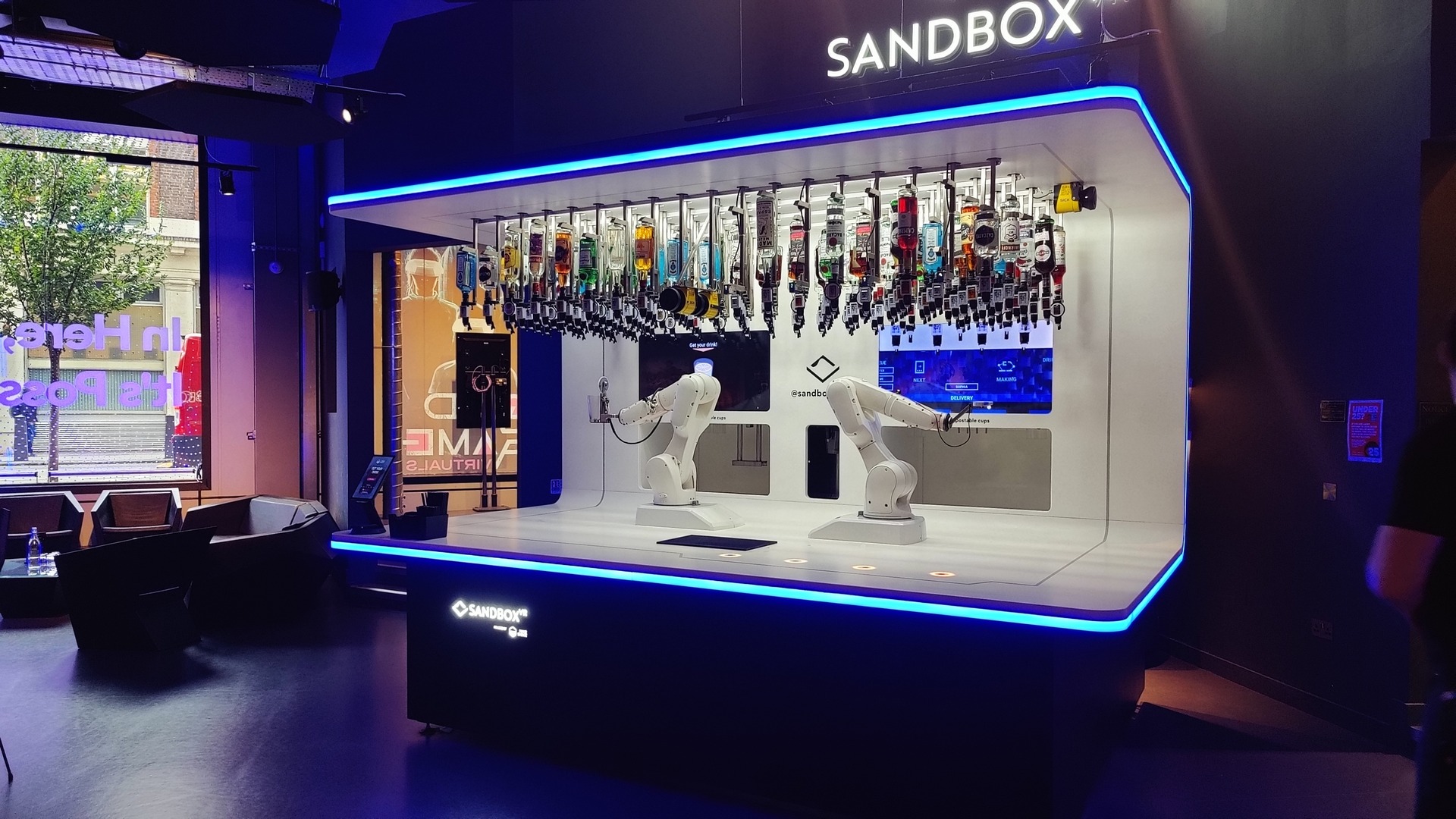
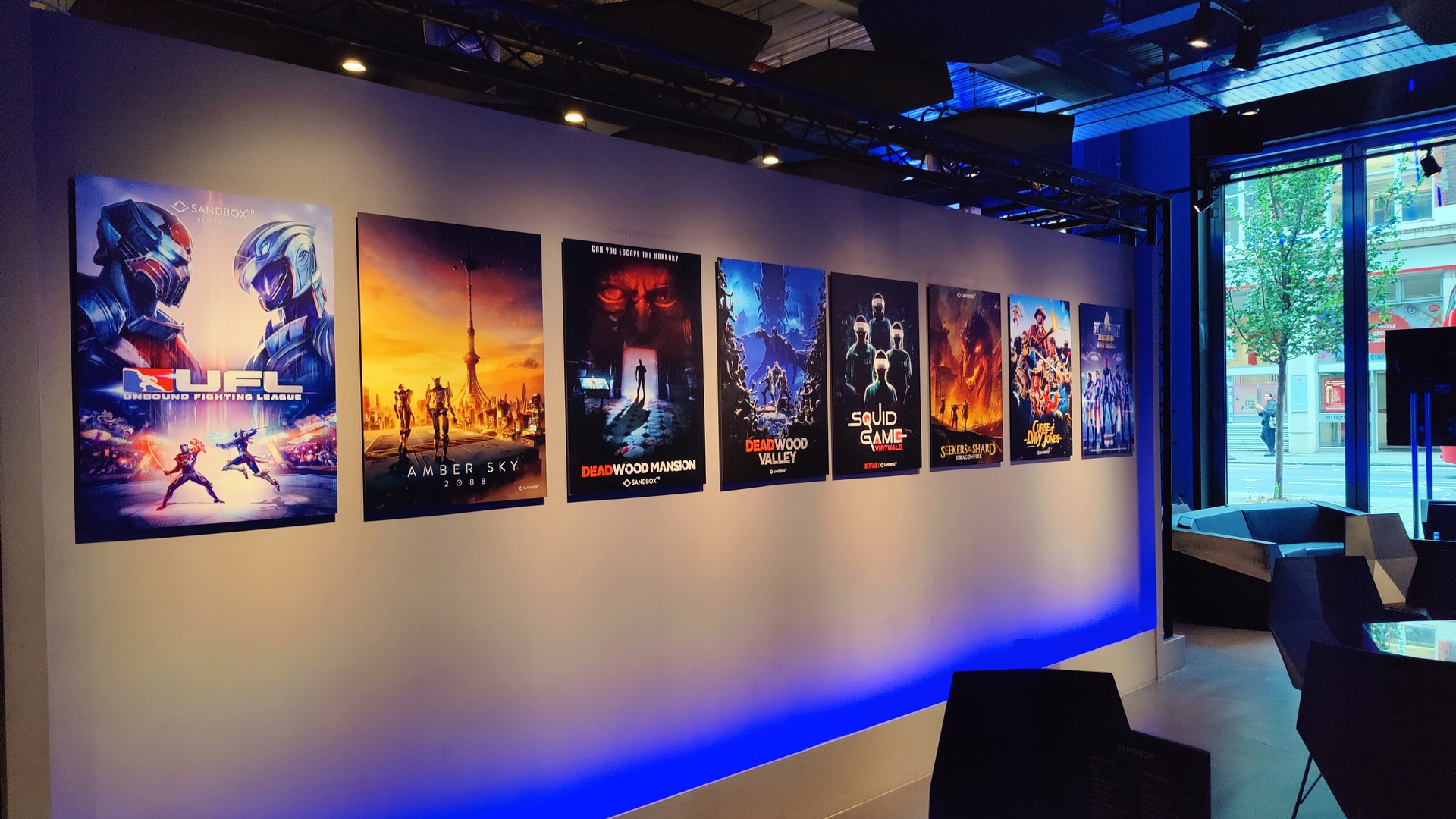

Myself and three other players were escorted to our playspace where an instructor helped us slide into our gaming setups. This included external sensors for our hands and feet, a haptic vest, and, of course, the HTC Focus Vision. Here the Focus Vision took its first opportunity to wow me with its automatic interpupillary distance (IPD) adjustment. On most VR headsets, you have to manually twiddle around the eye lenses until everything comes into focus, but there was none of that fuss here. There is also generous space inside the headset for glasses wearers — I have small frames, but another attendee (BigFuzzyYak) had a larger pair of cat-eye frames and she said the headset fit over them with no issues.
So, we're all geared up and ready to play, but what is a Squid Game VR game actually like? Thankfully, it's a much less gruesome version of the show, with players competing in a series of minigames to collect points. It's a lot like a video game version of Takeshi's Castle or Wipeout.
Breaking space news, the latest updates on rocket launches, skywatching events and more!
We started off with a digital recreation of the iconic "Red Light, Green Light" game from the show. Everyone had to collect coins that appeared in the air and drop them in a giant, golden piggy bank. The catch? You have to freeze on the spot when the angry robot lady shouts "red light." Failing to do so results in a painful end for your avatar (and a hefty rumble from the haptic vest to let you know you've messed up).
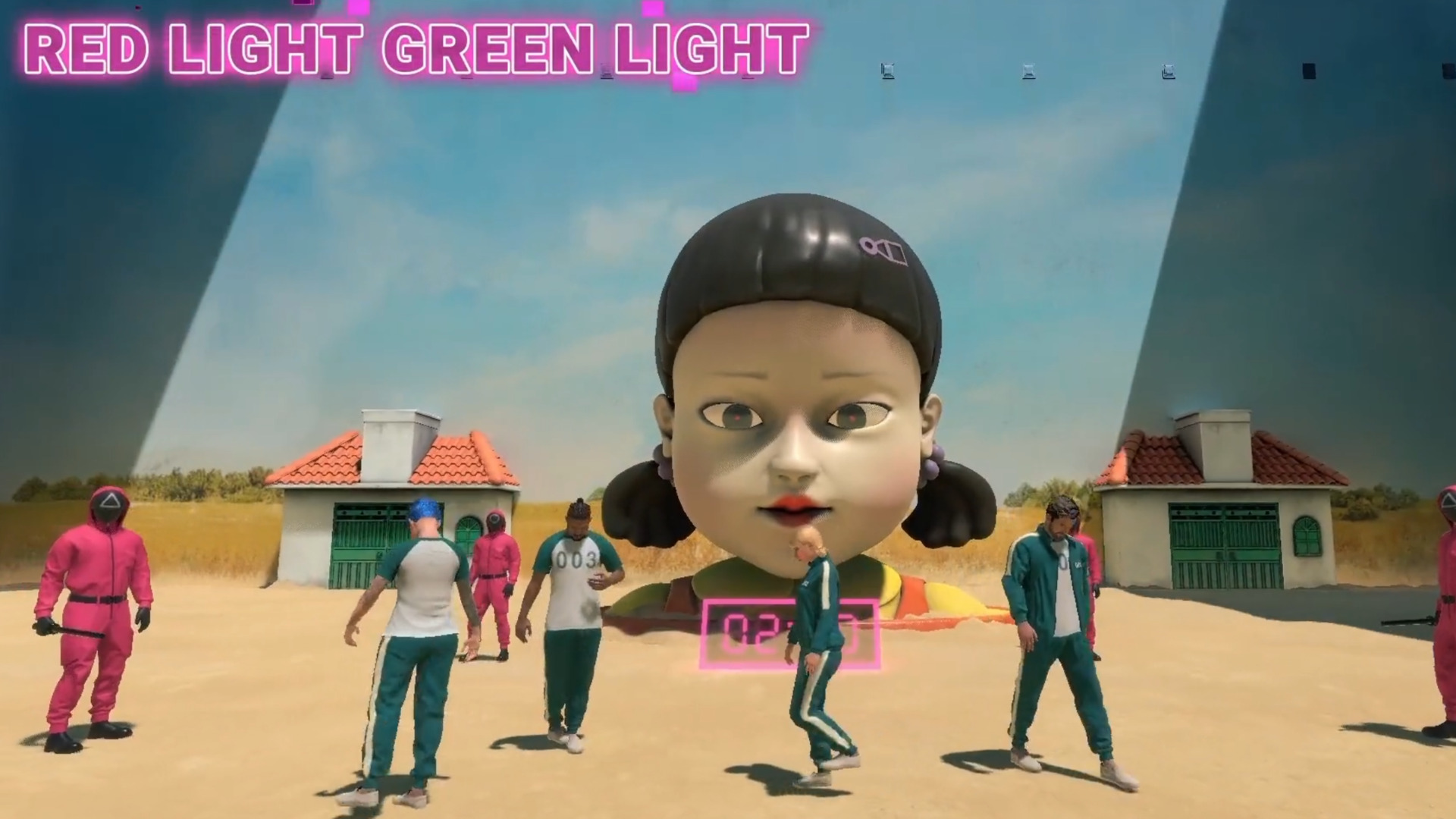
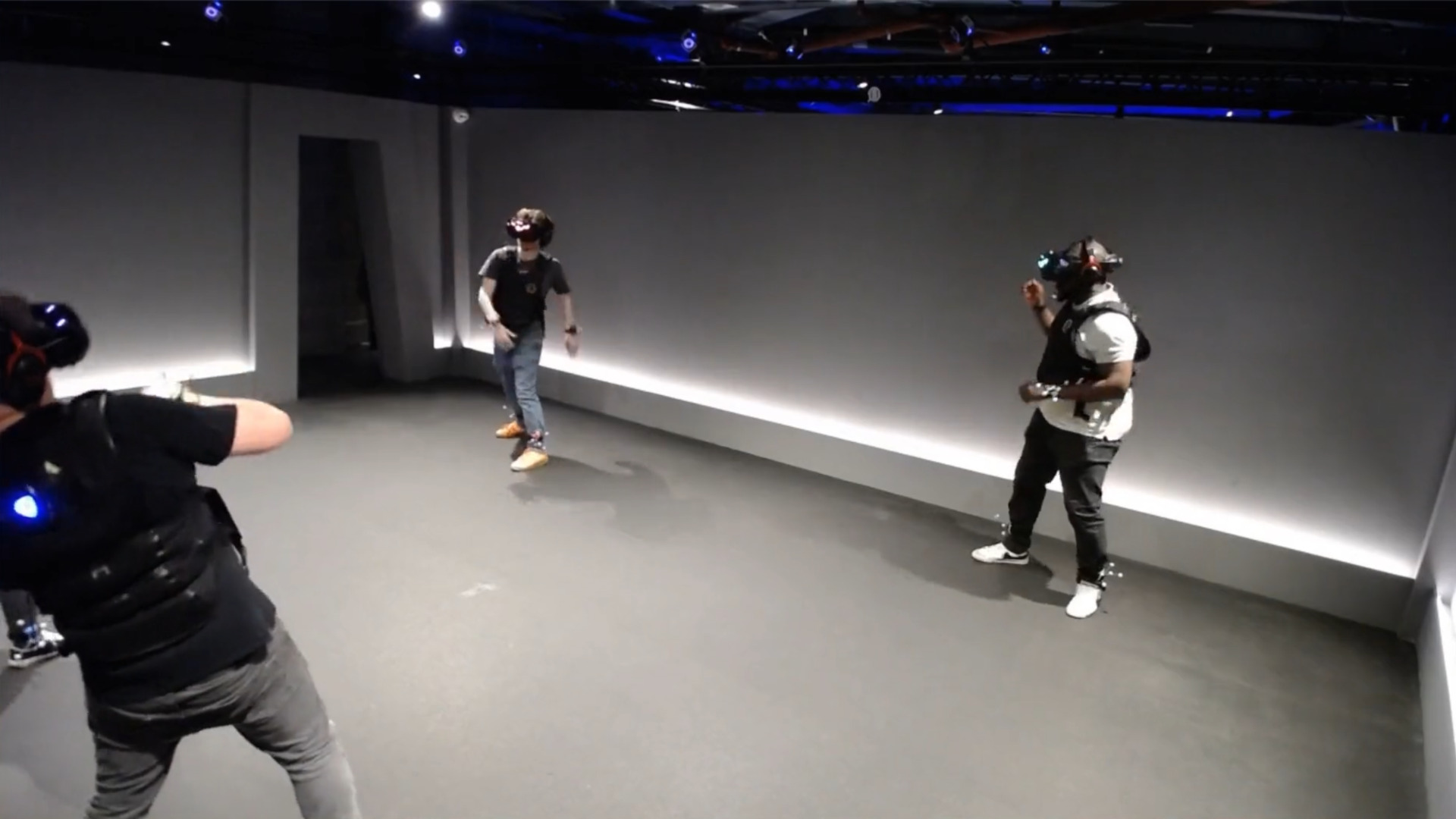
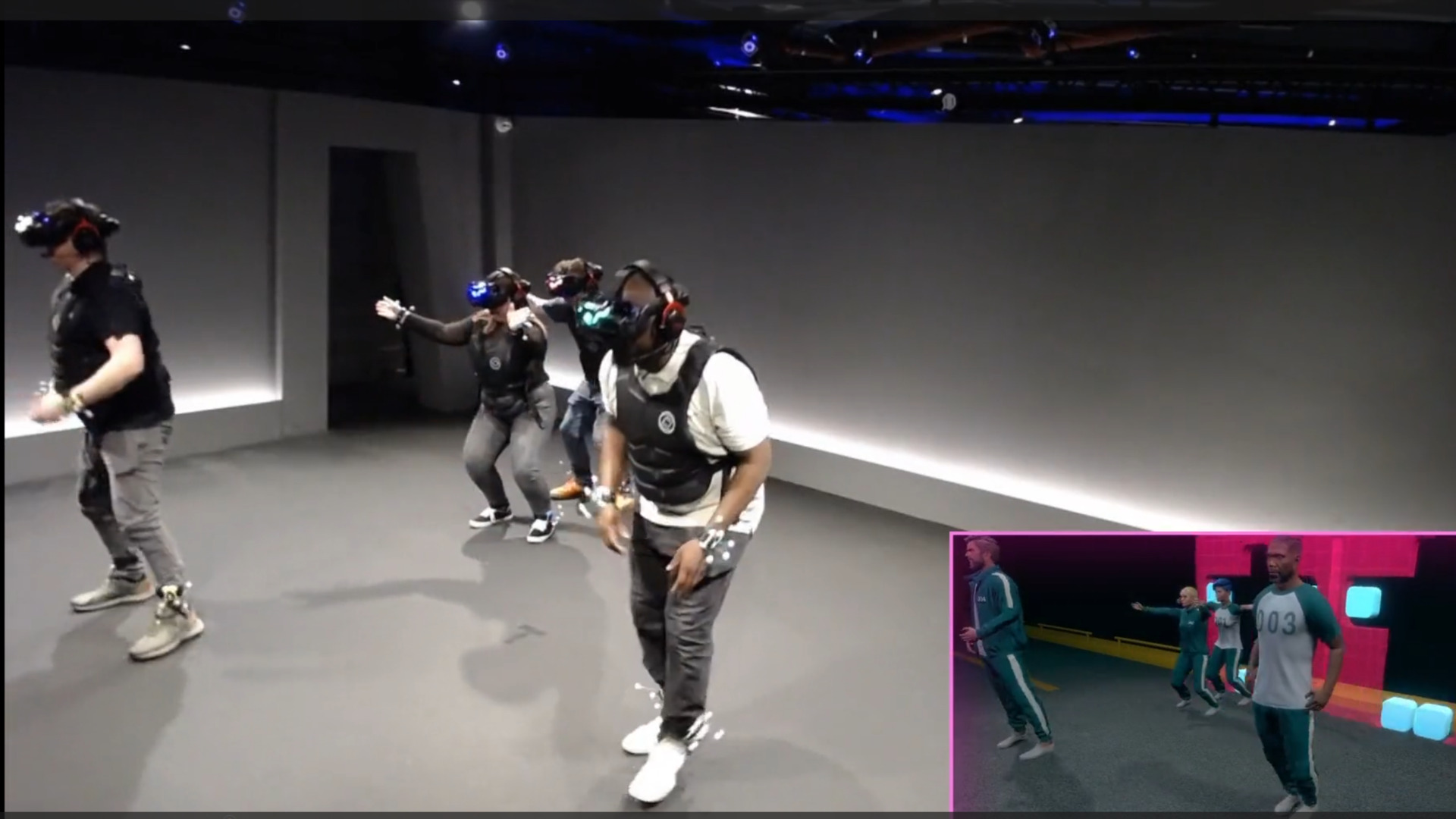
This is exactly the situation that wireless headsets like the HTC Focus Vision are made for. Even in the relatively large space we had, the four of us were constantly moving around each other trying to steal coins — if you tried this with four wired headsets, you'd end up with a HDMI cable Gordian knot at the end of it.
As we moved through the rest of the minigames, we got to put various claims and features of the HTC Focus Vision to the test. In "Make A Shape," a series of walls move towards the players, and you all need to manipulate your bodies to fit through oddly-shaped holes. This "human Tetris" put the limb tracking through its paces, and as much as I'd like to blame my lack of dexterity on tech issues, the tracking upheld its end of the bargain perfectly.
By default, the Focus Vision uses an infrared floodlight and four cameras to follow your hand movements, but you can upgrade the experience with Vive Ultimate Trackers to track your arms and legs. Throughout all the game sessions, we only had one player lose tracking on the headset, and the issue was quickly resolved.

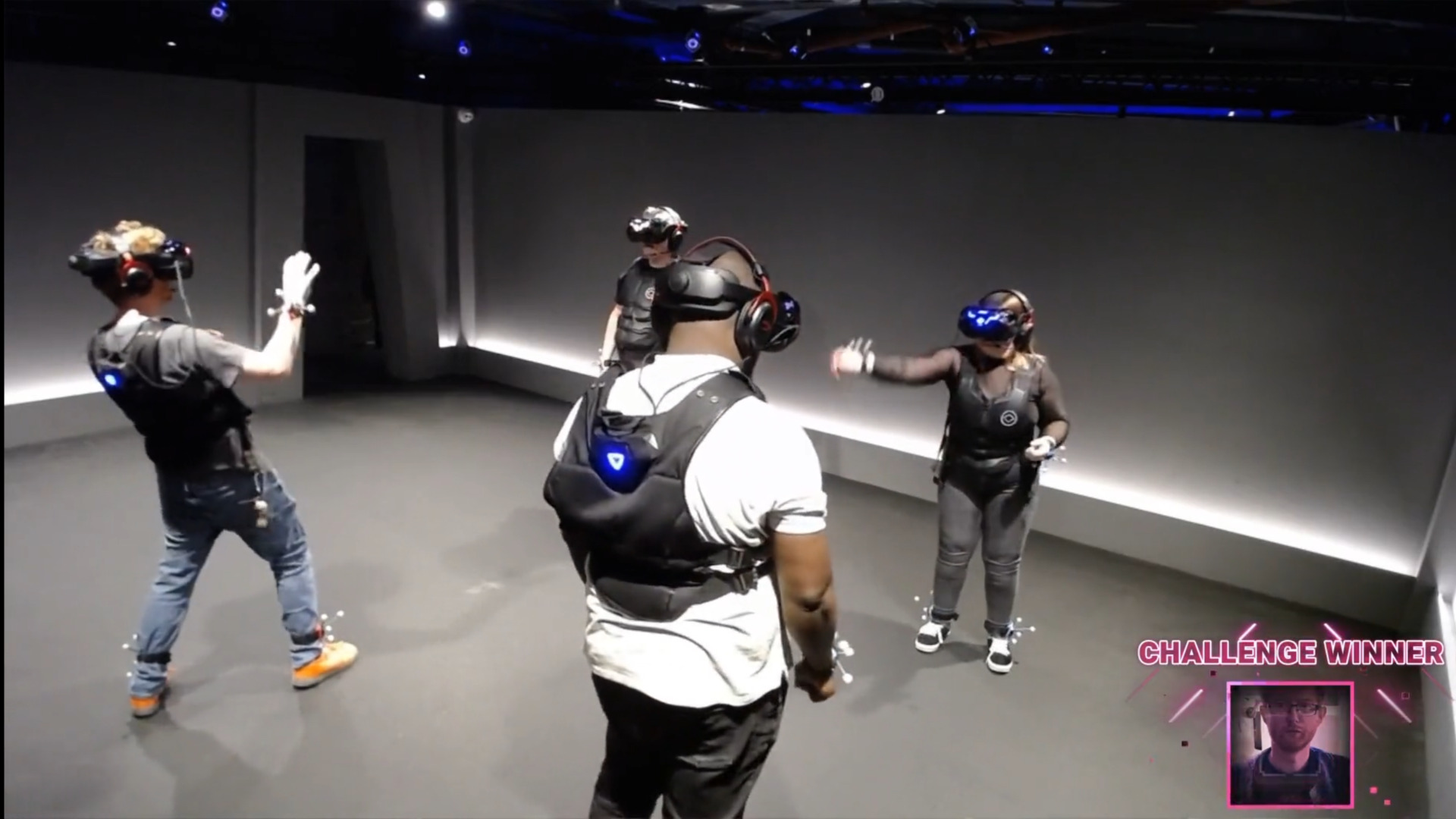
We carried on through the rest of the games which included "The Pendulum," which had us smacking spikey pendulums of death at each other, and "One of Four," where we had to catch piggy banks to find out which floor tiles were safe to stand on at the end of the round. I've heard accusations that I stood on an incorrect square until the last second and then ran off, leaving my trusting compatriots to plummet to their death — that's fake news, people.
We finished things off with "Catch and Match," which gave the Focus Vision one last chance to impress me with its tracking. We had to quickly catch shapes that were being fired at us and deposit them in the corresponding holes, all whilst dodging bombs from other players (and firing off a few of my own). I became one with the machine for this one, using both hands to snatch geometry out of the air and slam dunk them into the bins — it was like if Neo had entered a game show instead of fighting Agents. Even more impressive than my sick moves was the headset's ability to keep up. I've found even some of the best VR headsets throw a fit if you move your arms too close to each other or move too quickly, but I had no such issues here.
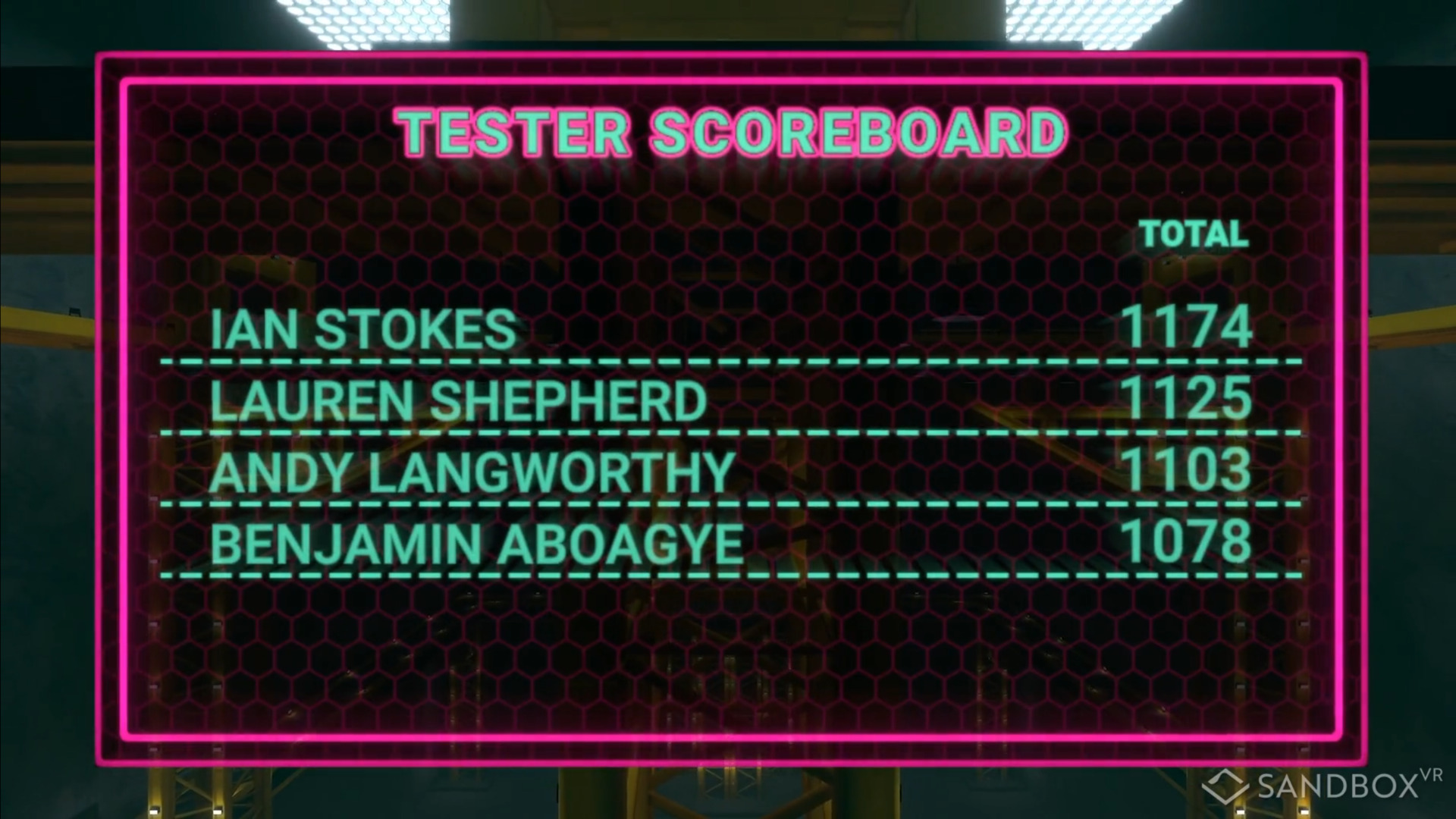
I emerged from my Squid Game ordeal physically exhausted, sweating profusely, and victorious! I was really impressed by Squid Game Virtuals and the whole setup at Sandbox, but that's ultimately not what I was there to check out. HTC's latest effort in the VR space certainly makes a great first impression. It's super comfortable to wear, thanks partially to the ergonomic design and mountains of foam, but also because of how well balanced the weight is. Other headsets can often feel very front heavy, making extended play sessions a strain on your neck, but HTC's focus on comfort has certainly paid off.
The automatic IPD was also a huge win for me — it removes the barrier of tedious faffing about and lets you just get stuck in. Just put the headset on and boom, you're ready to go. In many ways, the HTC Vive Focus Vision feels like the perfect VR headset for places like VR cafes and group venues, but how well it will fit into the home VR market remains to be seen.
With an asking price of $999 / £999, it's $350 more than the Meta Quest 3 — a headset that has the same processor, a higher refresh rate, and even a superior pancake lens when compared to the Fresnel lens in the Vive. Under the hood, the HTC does have some real technological and ergonomic advantages though, and if you offered me either headset for free, I'd snap your arm off for the HTC. However, in a world where the Meta Quest 3 is often on sale for as low as $500, it's going to need to wow users to justify that cost.
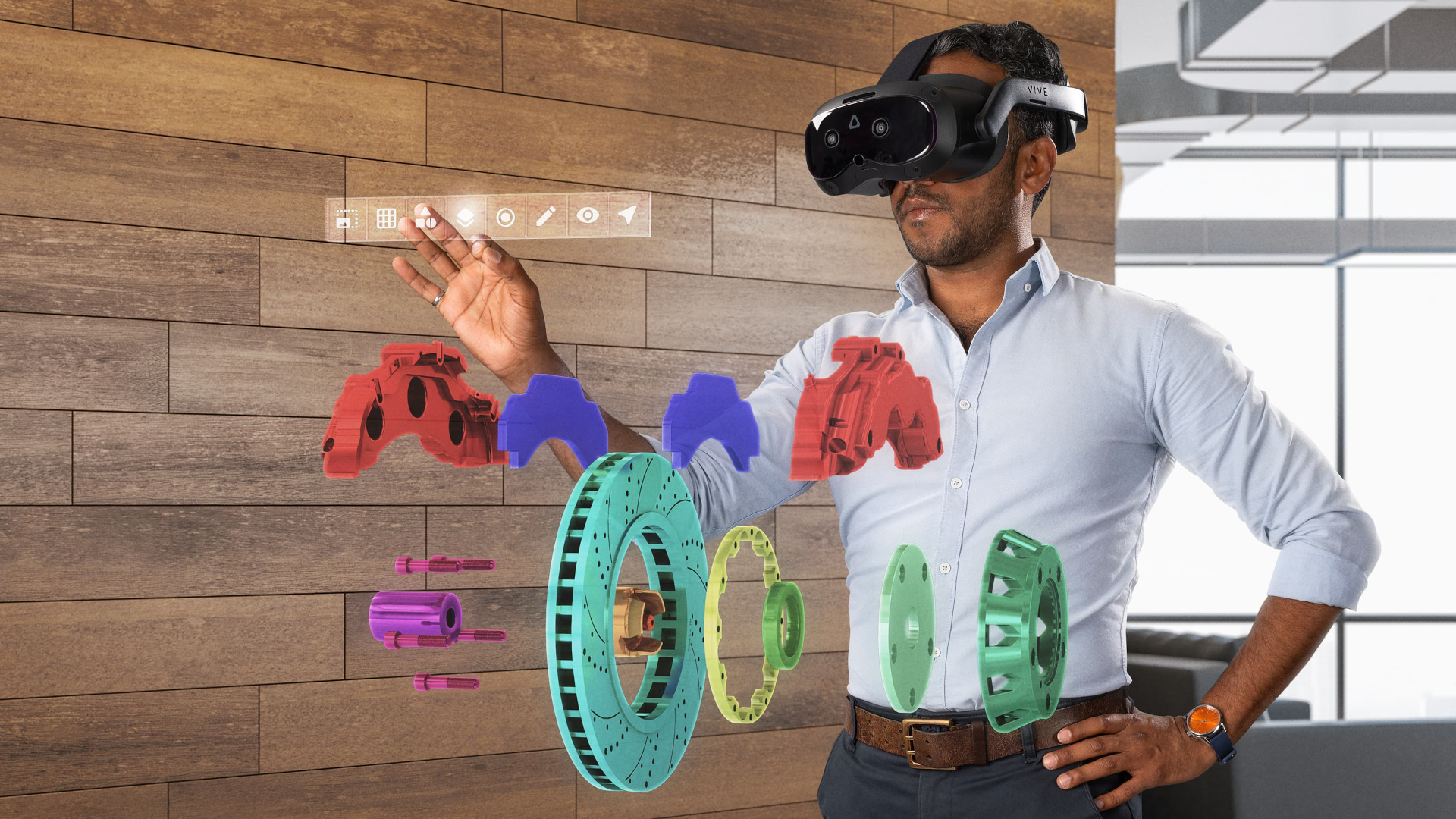

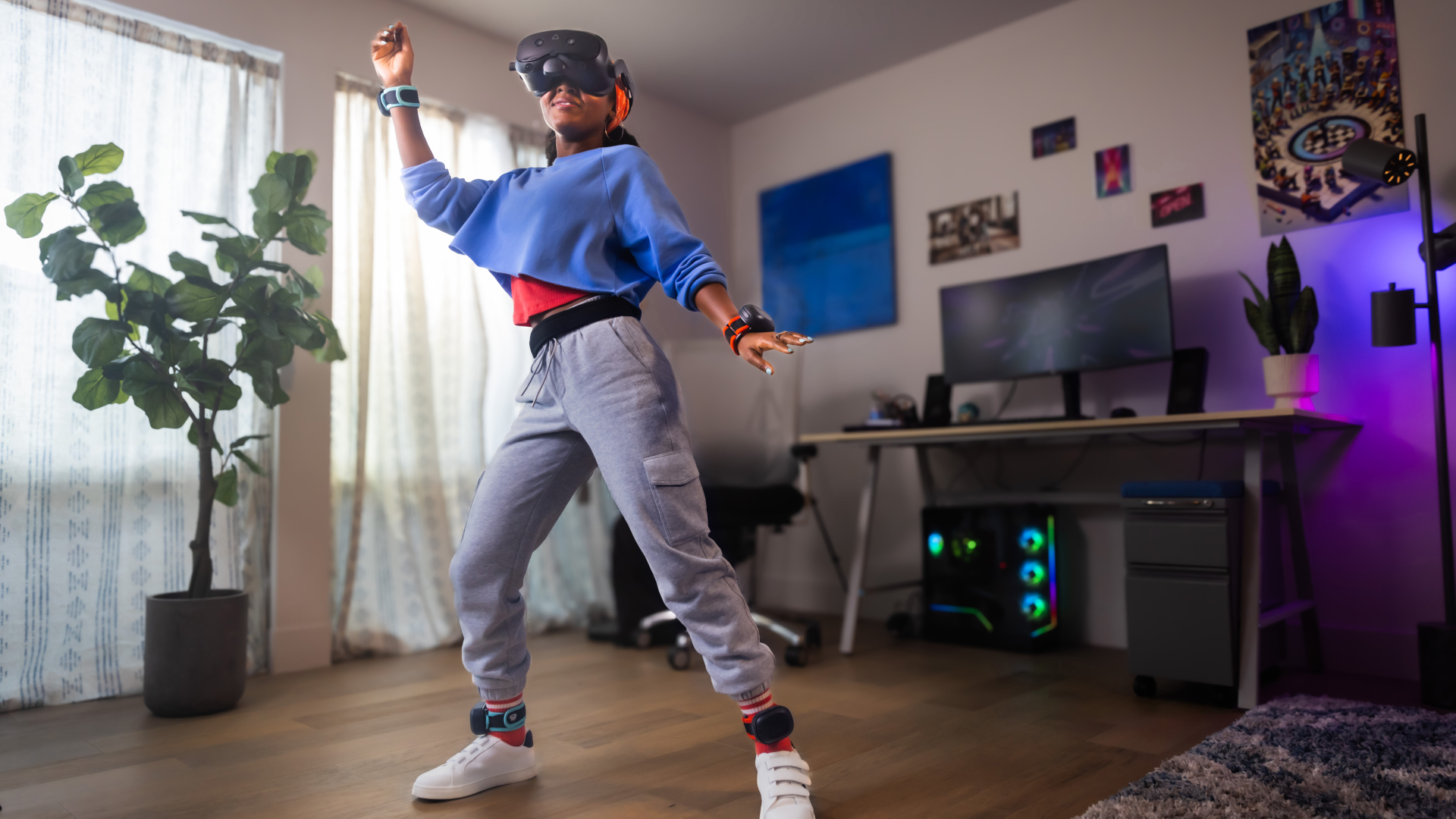
Looking at the imagery and language on the storepage, it's clear that HTC is trying to position this as a multi-functional device that can be used for work, creativity as well as gaming (though that's hardly a unique angle in VR these days). At any rate, we'll be reviewing the HTC Vive Focus Vision later this year, seeing how it handles some of the best VR space games, so stay tuned for that.
The HTC Vive Focus Vision is available for pre-order now and costs $999 / £999. It will be released on October 17, and if you pre-order before the release date, you'll get a Vive Wired Streaming Kit (DisplayPort mode compatible) worth $149 / £159 and 7+ games thrown in for free.

Ian is the Entertainment Editor at Space.com, covering movies, TV series, and games in the space and sci-fi realms. He's a massive sci-fi nerd and has been writing about games and entertainment for over eight years, with articles on sites like Space, LiveScience, GamesRadar, and more. With a degree in biology, a PhD in chemistry, and his previous role at the Institute of Physics Publishing, Ian is taking a world tour through the different scientific disciplines.
